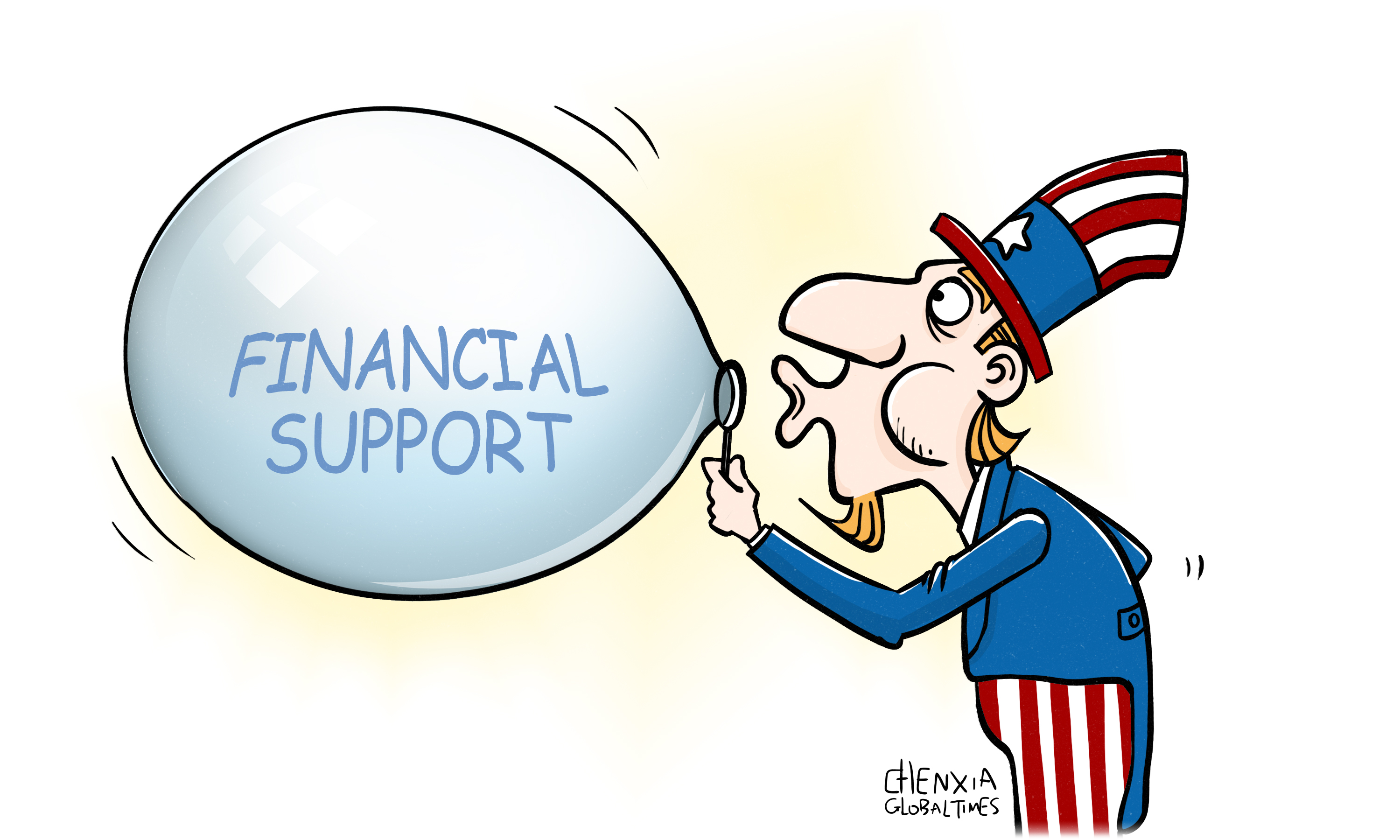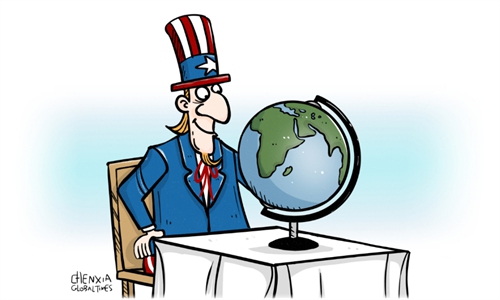
Illustration: Chen Xia/Global Times
US President Joe Biden is hosting leaders from across the African continent in Washington, with plans to unveil $55 billion in economic, health and security support, as part of a renewed bid to win back influence across the continent.
"The US will commit $55 billion to Africa over the course of the next three years, across a wide range of sectors," the Voice of America reported on Monday, citing White House National Security Advisor Jake Sullivan.
Some observers said the US has interests on the African continent that engender competition with China, and Washington tries to increase its economic presence with an economic aid package, but, whatever purpose lies behind the economic support, a pledge of $55 billion is a good thing to promote economic development on the continent and should be welcomed.
Global headwinds are slowing Africa's economic growth as regional nations continue to contend with rising inflation, hindering progress on poverty reduction. More attention and support need to be given to the continent to improve people's living standard and integrate small African economies into global value chains. Frankly speaking, there's not enough help being offered, especially during Donald Trump's presidency. Hopefully Washington's $55 billion commitment can be fully fulfilled based on mutual respect and mutual benefit.
Africa deserves more attention from the international community, as the continent is indispensable to the common development of the global economy.
African countries have been recipients of American assistance for a long time, but so far, the effect is very limited. The half century of economic assistance has not helped Africa substantively solve its development problems, and there are multiple reasons involved. First, Western donors generate policies based on their own experience and neoliberal rhetoric, adding political conditions to foreign assistance. Second, we frequently hear calls to shrink or eliminate US foreign-assistance programs, especially at time when the economy faces downward pressure. Third, the uneven distribution of Western assistance among different interest groups in recipient countries, based on Western ideology and values, is seen as a contributor to rising social and economic problems.
It is still unclear what Washington's $55 billion commitment will mean for the African economy, but there is a high probability that its effect will be limited. At the very least, this is far from enough to bring US-Africa economic relations to a new high.
The US exports of goods to the African continent barely topped $26.7 billion in 2021, down 30 percent from a high of $38.1 billion in 2014. Two-way trade was $64.3 billion - barely more than one percent of US global commerce - down from a high of $141.9 billion in 2008, according to The Africa Report.
The US trade flows, lending, and investments all have decreased in real terms from 2010 to 2017, said Aloysius Ordu, the Nigerian-born director of the Africa Growth Initiative at the Brookings Institution in Washington, according to the report.
Recently, the African Union Industrialization Summit was held in Niger. The summit called on African countries to take advantage of their advantages in labor force, raw materials and market size to further accelerate industrialization and improve the status of African industrial manufacturing in the global industrial chain, according to reports.
"The African continent is blessed with a large youthful population that can meet our labor shortages. Therefore, we need to tap into this abundant human resource by providing our youth with quality education that is relevant to their goals and meets the requirements of the labor market," Nigeria's President Muhammadu Buhari said, according to media reports.
But in the context of the prevalence of economic protectionism, the US has no time to place a necessary focus on Africa's development demands. The US' Africa strategy in August ignores Africa's needs and real conditions. In the 17-page new Africa strategy, there is only one symbolic reference to the most important African Union Agenda 2063 for Africa's development. Obviously, the US doesn't care what African countries' real interests actually are.
Africa's destiny in its own hands. If US-Africa exchanges cannot help Africa cope with development challenges, only a pledge of $55 billion will not be enough to promote the US-Africa partnership.
The author is a reporter with the Global Times. bizopinion@globaltimes.com.cn



